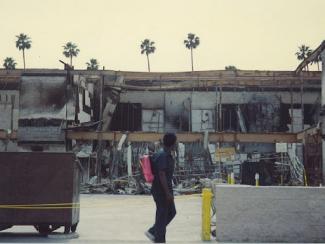
On November 5, 1992, just months after the Rodney King uprising, Detroit police beat a man named Malice Green to death. Pressure grew surrounding the trial. People wrote to the mayor, begging. And not just for justice.
If this trial ended in acquittals, would Detroit also go up in flames?
Cops Walter Budzyn and Larry Nevers already had a violent history. And when the judge refused to move the trial out of Detroit, and sequestered jurors watched Spike Lee’s Malcolm X biopic, another fear came.
It wasn’t just Malcolm’s legacy. The film opened with clips of King’s beating and condemned white supremacist violence. Connecting King and Green would remind everyone that police violence is a systemic enemy targeting all Black people, not just in LA or Detroit.
And our resistance could transcend singular cities.
That fear didn’t die in the 90s. In the Breonna Taylor and George Floyd police violence trials, public discourse stoked sympathy for white jurors who feared that their verdict would “spark riots.” Could Black jurors truly be impartial?
But, as policing continues to escalate, the outcome of individual trials won’t matter.
For generations, Black resistance hasn’t died. When the system itself is killing us, one guilty verdict can’t save it. Their fear is our hope. We cannot stop until policing is abolished entirely.